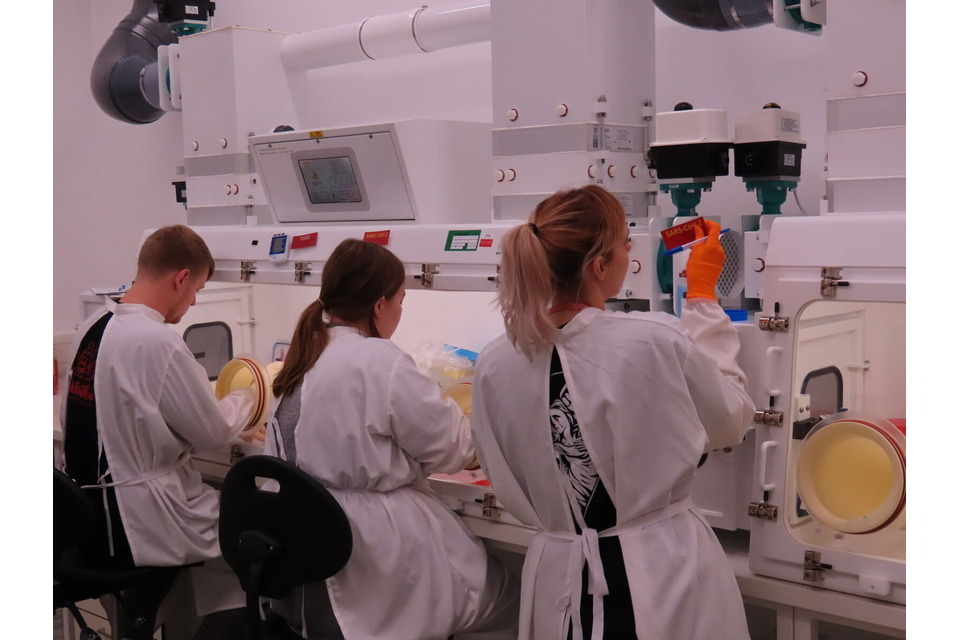UKHSA's Vaccine Development and Evaluation Centre (VDEC)
The Vaccine Development Evaluation Centre (VDEC) at Porton Down in Wiltshire facilitates the development and evaluation of new vaccines and therapeutics.
Work with VDEC
We work with industry, academia and government. Contact UKHSA today to see how we can help you.
What VDEC does
The Vaccine Development Evaluation Centre (VDEC) provides high-quality, cutting-edge science, building on over 100 years of innovative scientific research. Working with partners, VDEC’s skills and resources enable the development of the vaccines we urgently need to save lives and mitigate the harm from vaccine-preventable disease.
We are actively seeking national and international collaborations and partnerships from all sectors.
VDEC factsheet
De-risk your product pipeline
VDEC’s high containment biosecure laboratory capabilities (biosafety level (BSL) 2, 3 and 4), are the most extensive of their kind in the UK. They provide a focal point for accelerating the development of:
- pre-clinical models
- in vitro assays
- countermeasures for pathogens of pandemic potential, high-consequence infectious diseases and high-risk infectious diseases

Scientists working in a Class III secure microbiological safety cabinet
What we offer
We offer access to the expertise of over 200 highly trained scientists who run approximately 100 projects per year in 2 state-of-the-art laboratories. We work across the vaccine and therapeutic lifecycle from discovery through clinical testing to post-licensure, all to the appropriate quality standards.
We can support you through:
Case studies
Partnerships and projects
We work closely with international partners and a range of academic bodies.
Find out more about partnerships and collaborations on vaccine development and evaluation
See our work
Microphysiological systems: how ‘organ on a chip’ technology is changing science
Over 150,000 mpox vaccines ordered as UK anticipates new strain of virus
Huge vaccine centre launched to bolster UK’s pandemic preparedness
Chief Executive Dr Jenny Harries unveils our latest research facility, the Robinson Building
Updates to this page
-
Added the Microphysiological systems: how 'organ on a chip' technology is changing science video.
-
Added the 'organ on a chip' case study.
-
Added the "Over 150,000 mpox vaccines ordered as UK anticipates new strain of virus" video.
-
Added novel and dangerous pathogen training link.
-
Added the VDEC form link.
-
Updated the content to focus on commercial offering and partnerships.
-
Added information on clinical and pre-clinical evaluation, and antimicrobial resistance.
-
Updated to reflect VDEC becoming operational.
-
First published.